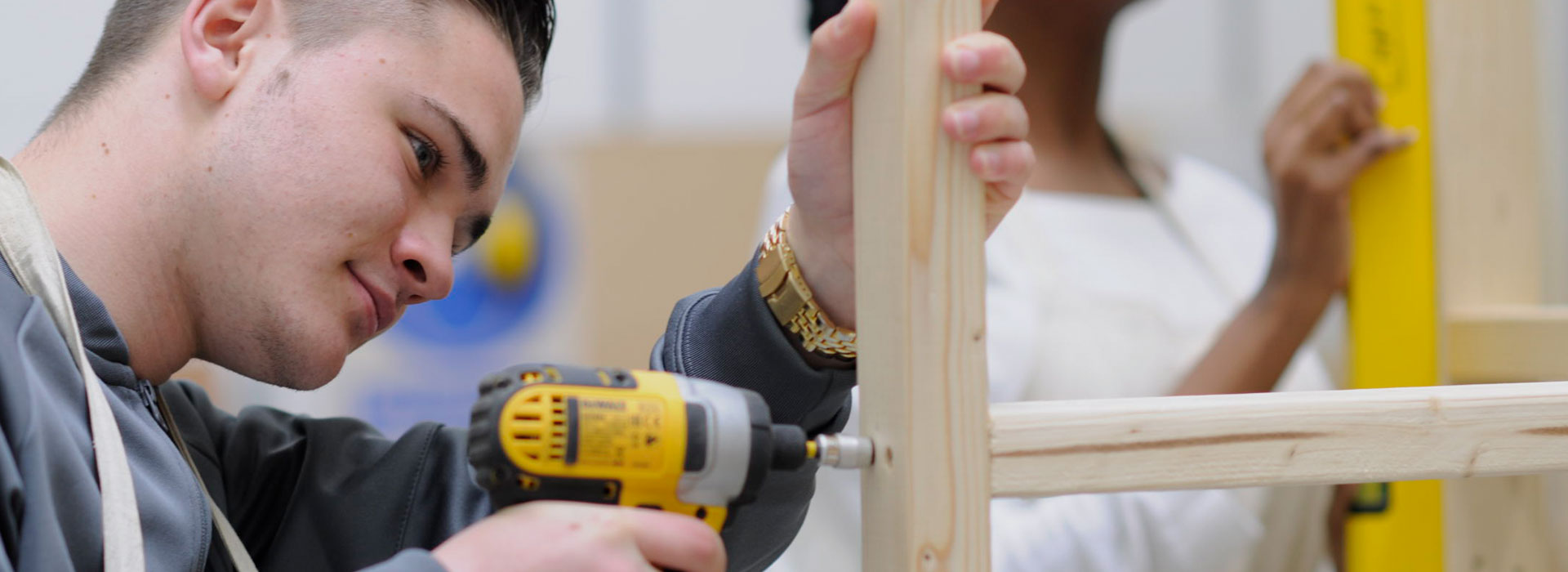Key Facts
-
Starting
Throughout the year- Location
- Wandsworth
- Duration
- 4 Years
- Study Mode
- Combination of work and study
- Start Date
- Throughout the year
- Level
- Level 3
- Code
- WTE3016AS
-
Starting
Throughout the year- Location
- Wandsworth
- Duration
- 4 Years
- Study Mode
- Combination of work and study
- Start Date
- Throughout the year
- Level
- Level 3
- Code
- WTE3015AS

Civil Engineering Technician Apprenticeship - Level 3
A Civil Engineering Technician provides technical support to engineers and other construction professionals in the design, development, construction, commissioning, decommissioning, operation or maintenance of the built environment and infrastructure. Technicians will be required to have a broad skills base to work in areas which include sustainable construction, structural integrity, geotechnics, materials, tunnelling, marine and coastal engineering, water, waste management, flood management, transportation and power.
A technician's work will involve
- Design - assisting in the development of technical solutions by producing design models, calculations, reports and drawings, surveying a site, using appropriate analysis and relevant codes.
- Analysis - using appropriate software systems and other data gathering tools and tests to solve technical problems.
- Project delivery - contributing to planning, managing work schedules, budgets and deadlines, and ensuring outputs comply with client and industry specifications, standards and guidance.
- Site engineering - operating quality systems and Health, Safety and Risk Management procedures and checking specified technical aspects of site activities.
Apprenticeships are flexible and are designed to offer a structured programme of learning to fit around the needs of the individual and employer. Learning takes place mainly during employment through the development of on the job skills, supported by college tuition Both the 'on and off job' elements of the Apprenticeship lead to nationally recognised qualifications.
-
Entry Requirements
Entry requirements: An apprentice will be expected to have achieved at least 5 GCSEs at Grades A*-C, 4-9 including Maths (Grade B/6), English (Grade B/6) and Science or their equivalent. -
Course Content
As part of the programme, learners will engage is study of a number of modules:- Construction Principles (Externally examined)
- Construction Design (Externally Examined)
- Construction Technology
- Health & Safety
- Principles of Structural Mechanics
- Site Engineering for Construction
- Civil Engineering in Construction
- Graphical Detailing for Construction
- Further Mathematics for Construction
- Management of a Construction Project Apprentice will develop the necessary Knowledge, Skills and Behaviours to be a competent Civil Engineer as outlined by ICE, to name a few: -Knowledge
- The different techniques and methods used to design, build and maintain civil engineering projects
- The appropriate scientific, technical and engineering principles relating to the design, delivery and maintenance of infrastructure and buildings
- How to work effectively and contribute to engineering solutions by the correct use of resources and time
- How to communicate effectively using a range of techniques
- Safe working practices and how to comply with them
- Sustainable development and their own contribution to economic, environmental and social wellbeing. -Skills
- Select and use appropriate scientific, technical and engineering principles, techniques and methods to contribute to the design and delivery of infrastructure and building projects
- Work with others to contribute to produce integrated engineering solutions by the correct use of resources and time
- Manage and maintain the quality of their own work and that of others
- Communicate effectively and appropriately with others using a range of techniques
-Behaviours
- Take a responsible approach to health and safety
- Be professional, proactive and receptive to constructive advice and guidance
- Be willing to learn new skills and to adapt in the light of experience
- Know one's limitations and when to ask for help or escalate
-
Progression Next Steps
On completion of the apprenticeship the apprentice will have satisfied the requirements for registration as an Engineering Technician by the relevant professional engineering institution in accordance with the requirements of the Engineering Council as the registration body. -
Additional Information
Click on the Apply link on this page to start the application process if you are in or have secured suitable employment for the Apprenticeship.For further guidance and information if you are not currently employed in a suitable role please have a look at Apprenticeship FAQs
If you are an employer and interested in any of our Apprenticeships for your staff, please email our dedicated Apprenticeship team at business@stcg.ac.uk
-
Course Structure
The course is split into a number of phases: On-programme Training and development takes place during this part of the apprenticeship, with apprentices attending college one day a week plus assessment in the workplace. During this time, you will develop a portfolio. During their training, apprentices will develop the knowledge, skills and behaviours expected from a competent Civil Engineering Technician.End Point Assessment (EPA) is the final stage that an apprentice goes through to complete their apprenticeship. The apprentice must show their learning to an independent end-point assessor and the overall grade available is distinction, pass or fail.
The apprenticeship duration is a minimum of 36 months plus EPA. One day a week at College, with a minimum four days per week employed in suitable employment.
-
Assessment Details
The apprentice has to successfully achieve their End Point Assessment (EPA) which includes;- Knowledge test - multiple choice exam paper,
- Practical test and Interview underpinned by a portfolio of evidence.



